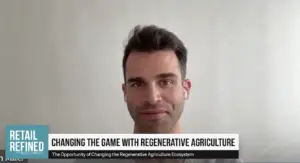Navigating New Standards and Workflows in QSR
The pandemic pushed many changes in the retail and restaurant space, particularly among QSRs. Consumers adapted to these changes by demanding quick and convenient options through technological options such as BOPIS.
On this episode of the Gauge Capital Podcast, Host Brent White talked with Sam Banon, Senior Vice President at Gauge Capital, and Luis Ibarguengoytia, CEO and President at Chaac Foods, a division of Gauge Capital, which owns and operates Applebee’s, Bojangles, Cru Food & Wine Bars, Ling & Louie’s, Panda Express and Pizza Hut in 12 states. The trio discussed the state of the QSR industry.
For QSRs, it was a story of Darwin’s Theory. The weak got weaker, and the strong got stronger. For those willing to adopt technology, have a drive-through option, and partner with third-party delivery apps, they faired pretty well. For those that didn’t, well, not so much. But things aren’t perfect. The tight labor market is forcing QSRs to raise prices, which means that those prices will inevitably end up with the consumer.
“It is clear that the dynamics of the business, as well as the economic model for restaurants has shifted,” Ibarguengoytia said. “All this excess on cost and operating has to be passed on to the guest.”
But, this doesn’t mean that 100 percent is passed on, with the operators absorbing a sizeable chunk. At Chaac, the goal is always to be the relatively inexpensive option, with casual being a mid-tier level and fine dining is being the highest priced.
“We need to make sure we’re still one of the relatively cheapest options out there,” Banon asserted.







